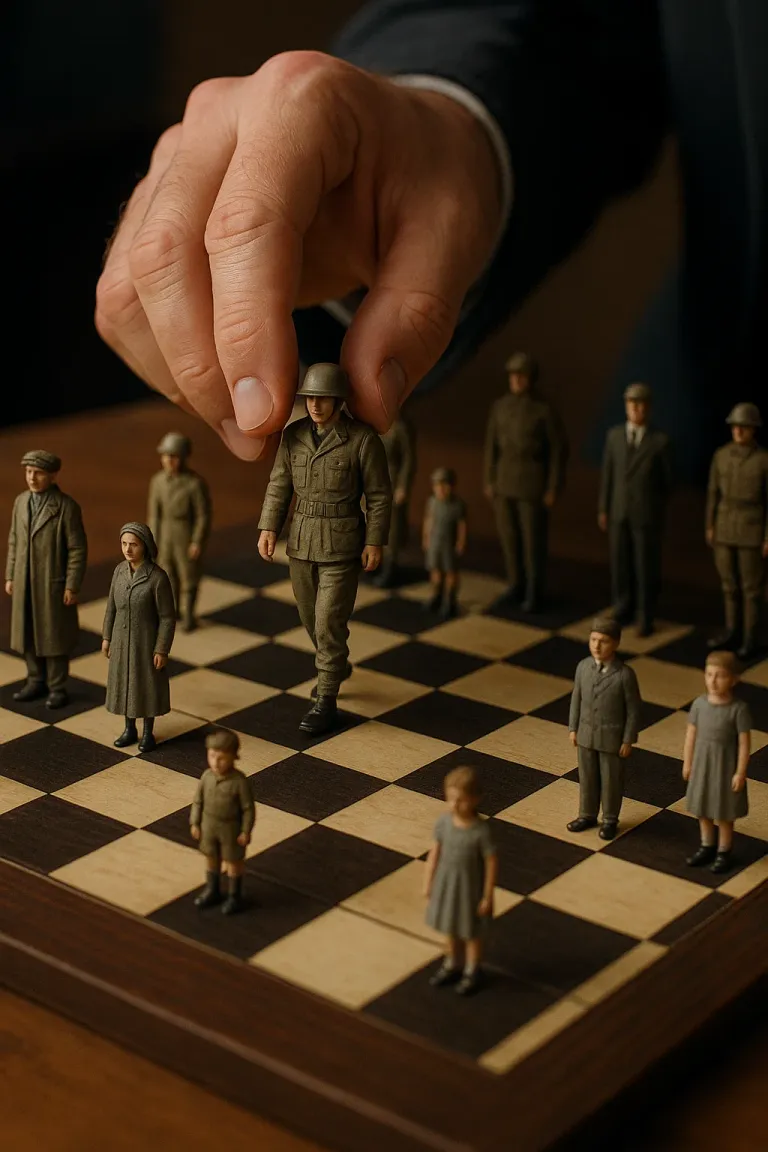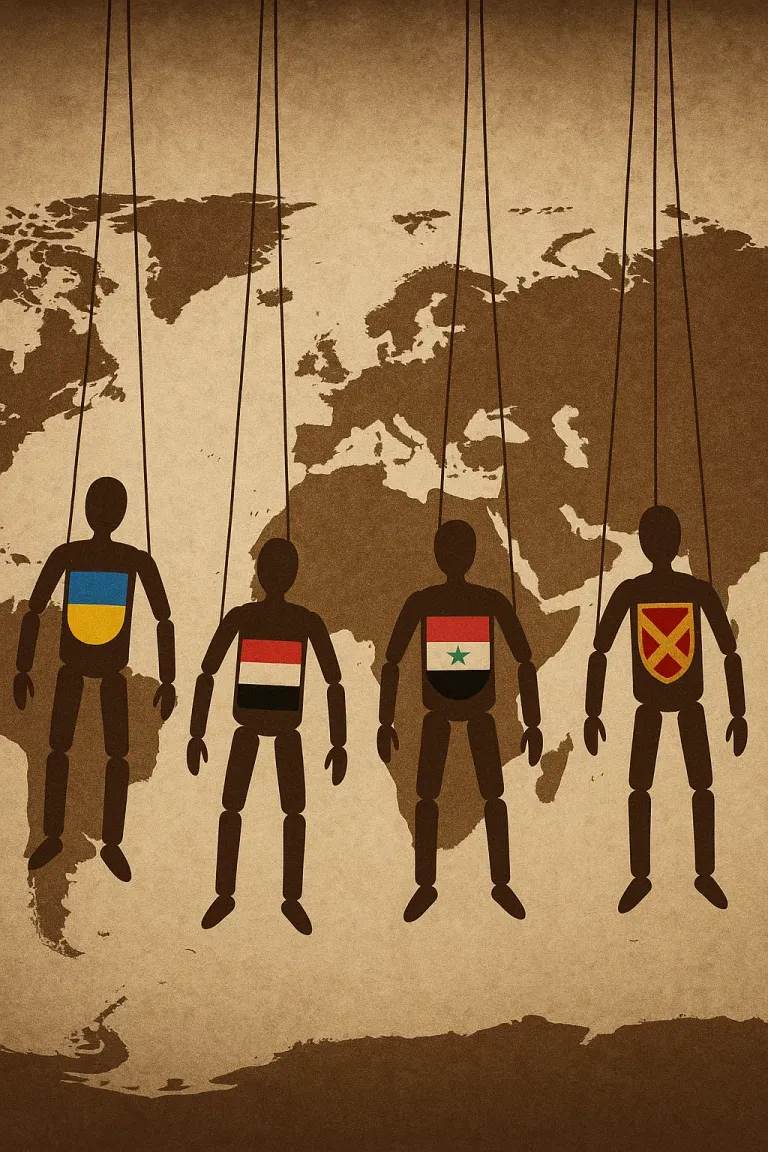
"Proxy war" is a term used to describe an armed conflict in which two or more powers use third parties: countries, armed groups, or puppet governments, as proxies to confront each other, rather than directly.
"Proxy" is an English word meaning "proxy" or "substitute." In this context, a "proxy war" is an indirect war.
How does a proxy war work?
- Major powers such as the US, Russia, China, etc. finance, train, or arm allied groups or countries.
- These allies fight against those powers' enemies, but in a local or regional conflict.
- In this way, the powers avoid direct confrontation, reducing their own military and political risks.
The term became popular during the Cold War from 1947 to the present day.
It was commonly used by:
- Academics and political analysts.
- Western media.
- Military/diplomatic reports, especially on conflicts such as:
. The Vietnam War (US vs. China/USSR-backed communism).
. The War in Afghanistan (USSR vs. US-backed mujahideen).
. Wars in Africa (backed by Cold War blocs).
Current examples of proxy wars:
- Ukraine (since 2014): Russia vs. the West (NATO/US).
- Syria (since 2011): multiple actors, including the US, Russia, Iran, Turkey, and rebel groups.
- Yemen: Saudi Arabia (with Western support) vs. the Iran-backed Houthis.

Today, wars are outsourced, disguised as "regional conflicts," tainted with ideology, "freedom," and "defense of democracy." But if we look closely, most are nothing more than proxy wars. Wars where the great powers never get their hands dirty, but they do get their wallets dirty.
What is a proxy war? A war in which others kill for you. It's that simple. Instead of the US or China/Russia going head-to-head, they use smaller countries, armed groups, or allied governments to do the dirty work. They provide the dead, the ruins, the chaos. The powers provide the weapons, the propaganda... and then they settle the score.
Who is the "power" behind it?
Do we really believe that Syria, Yemen, Ukraine, or Palestine are simply local conflicts? Nothing is so "local" when money, geopolitical interests, and resources are at stake. The war in Ukraine, for example, was sold to us as a heroic struggle of an oppressed people. But behind it are millions of dollars in weapons, contracts with military corporations, gas pipelines, and strategic power.
And that's not even considering the media manipulation, which repeats a script made for emotional consumption. We selectively become indignant, we cry where we're told, we hate what it suits us to hate.
The soldiers are the pawns.
While the generals play geopolitical chess, those who die are not their children. Farmers, young people without opportunities, innocent civilians die. And the countries used as theaters of war end up destroyed, divided, and in debt. And they don't rebuild themselves. They rebuild with loans, with NGOs that whitewash the power, and with companies that take over everything.
This model is sustained because we continue to believe that everything is as the media portrays it. They polarize us: left or right, pro or woke, victim or aggressor.
Who benefits from us fighting? Who profits from every bomb, every border, every ideology?

It's time to look beyond the theater. Proxy wars are current wars. They affect us here: with inflation, with forced migrations, with global crises invented to justify plunder, with invasions and armed wars.
If we don't figure out which side we're on, someone else will do it for us. And it probably won't be on the side of truth.
images created by SORA
Reference:https://www.fairplanet.org/story/what-are-proxy-wars-and-where-are-they-happening/